If you enter a room and ask, “On what basis should a federal government decide budget allocations to various regions or states?”, you are sure to find responses that are just as valid as they are varied. There are endless factors one may deem relevant in the decision of who gets a piece of the pie—and who gets the crumbs.
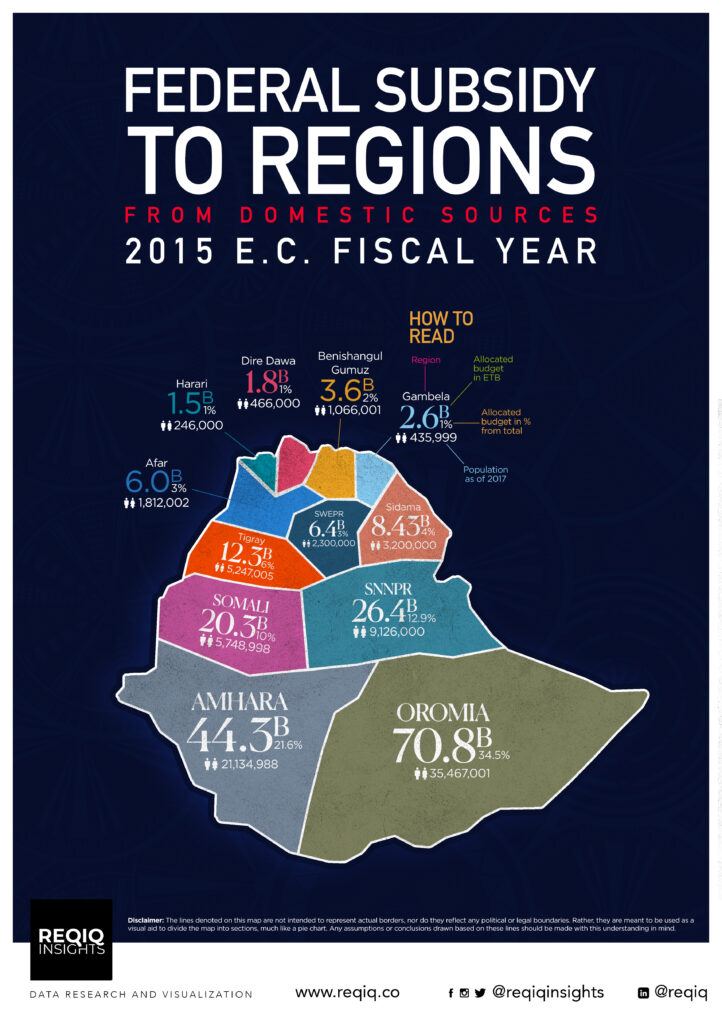
When it comes to deciding how a federal government should allocate its budget to different regions or states, there are numerous factors it considers. Population size, production capacity, regional need, historical reparations, and contribution to overall economic growth are just some of the categories that might be relevant. In Ethiopia’s political system, which operates under a federal governing system with decision-making authority distributed across multiple levels of government, regional budget allocation is a crucial component of its decentralized public finance system.
The regional budget allocation plan allows regional governments in Ethiopia some discretion over how to run their economies and determines how funds are split to focus on providing social services and development projects for those in need. The federal government distributes grants to regional states according to a formula developed in partnership with other stakeholders, including the Prime Minister’s Office, and approved by the House of Federation. This formula is reviewed and adjusted every three years to reflect changes in socioeconomic conditions across regions. Currently, grants from the federal government are the primary source of income for regional states, so allocating them among the regional states is a task that requires great care and seriousness.
Current and Historical Data on Regional Budget Allocation in Ethiopia
Recently, the Council of Ministers unanimously approved a draft budget for the 2022–2023 Ethiopian fiscal year, which was based on the 2022–2026 mid-term macroeconomic and fiscal framework. The approved draft budget was set to ETB 786.61B, with ETB 209.38B going towards a subsidy to be paid to the regional states and ETB 14B towards achieving sustainable development goals. This regional budget allocation plan provides increased financial independence for local governments in Ethiopia. This— in an ideal world— not only enhances the efficiency of resource mobilization and allocation but also caters to the diverse needs of the people, promoting a healthy business environment and fast, sustainable economic growth.
However, this system is not without its flaws. For example, in recent years, there is immense pressure on the federal government to conduct a population census. Part of the reason for this pressure is that this data is a major determiner of budget allocation. Without recent data on indicators used in the budget allocation formula, including but not limited to population count, it becomes susceptible to inefficient resource allocation, political manipulation, corruption, and inaccurate prioritization.
Despite these challenges, the benefits of this system outweigh the drawbacks of conducting national finance without a plan, and it is crucial to continue investing time, effort, and resources into ensuring that regional budget allocation is fair and equitable.

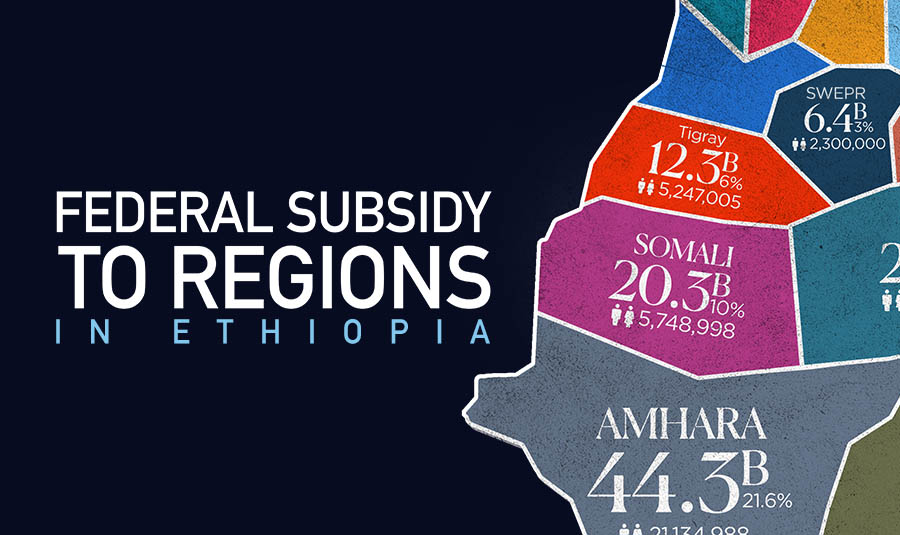

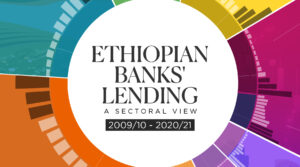
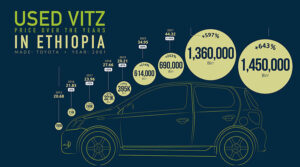
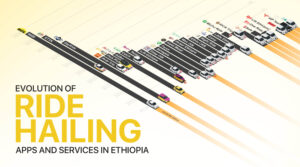



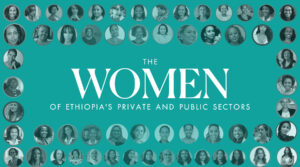

One Response
The data lacks accuracy and clarity. The Tigray regional state has not collected a budget for the last 3 years.